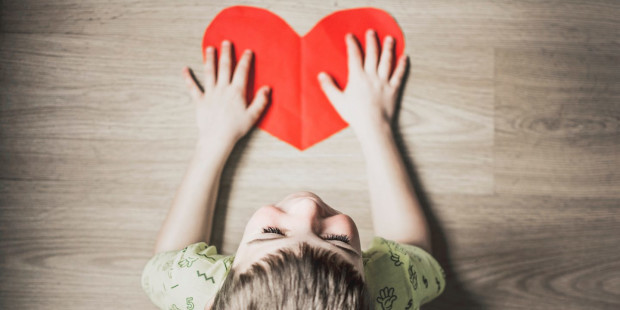Whether it’s between siblings, friends, or family, empathy contributes to creating bonds. It’s a necessary quality for creating a balanced relationship and is the foundation for respect, tolerance, kindness and understanding.
“Empathy helps us to understand each other better and contribute to the well-being of the world,” explains Stéphanie Couturier, an occupational therapist, psychologist, and author. “With the right tools, we develop better communication. The richer a child is in empathy, the stronger and more intense are his relationships. It’s an interior richness that flourishes when linked to an understanding of the world of emotions.”
Before we can develop empathy, Couturier reminds us, we must understand the full range of emotions; pay attention to others and be available for them; be open to listening to people without judging them; be able to set and maintain boundaries, and be sincere. This goes hand in hand with learning to think about the impact our words and actions can have on other people.
As parents, we need to explain to children that emotions aren’t always as simple or as obvious as they seem; some can remain hidden even to those who are experiencing them, and others can be misread or misunderstood, stresses Couturier.
While empathy comes easier to some people than to others, it’s also a capacity we can and should cultivate and develop in ourselves and in our children. Here are six things you can say to help your children be more empathetic …
“I understand you.”
Listening to what others have to say, and being attentive to their emotions, is a first step. This is something that children should learn in the context of their family, who should be empathetic towards them. They should feel “acknowledged, respected, consoled” when they are sad, frustrated, or upset, Couturier points out. “A child isn’t always expecting concrete solutions; he just asks to be listened to.”
“Can you put yourself in their place?”
In order for children to develop empathy, they need to understand how other people feel by trying to analyze the situation. “In the case of two friends becoming angry, for example, we can ask the child: ‘What is the emotion that your friend is feeling?'” suggests Couturier. “With as little fuss as possible and lots of calm, we can try help them work out what happened, while maintaining a certain emotional distance, as if it occurred in a film. The child will transpose the situation by means of the mirror neuron, without feeling personally affected.”
“Try to remember the expression on your friend/brother/cousin’s face.”
When children are younger, it is not easy to make them talk and to find the right words to calm them down after a conflict with one of their peers. Helping them to see the other side of the story can be a great help; to this end, Couturier suggests making use of their visual memory. The parent can ask their child to remember what the other person looked like before, during, and after the argument or fight, with questions like, “What did you see when you looked at your friend’s/cousin’s/ brother’s face? Anger, surprise, fear … ?” By having the child analyze the other person’s facial expression, we can train him to recognize other people’s feelings and understand their behavior better.
“What do you think made Mary so happy?”
In any given moment, while having a chat, parents can help their children to develop and build their empathy. For example, you can challenge them to think of what they could say or do to make a friend or relative feel joyful, surprised, etc. This will help them to understand the connection between their actions and the feelings they can provoke, explains Couturier. “It’s during these calm moments that we can encourage our child to put themselves in somebody else’s shoes,” continues the psychologist. While using their own feelings as a reference point for how others might react, they also need to keep some distance, understanding that different people react differently. “If they are too involved, their approach will be skewed.”
“Can you say I forgive you (and mean it)?”
As a necessary step in reaching out to others, it’s essential for children to learn both to say they’re sorry and to offer forgiveness. “Even if it’s not always easy to forgive, a grudge doesn’t help anyone,” points out Couturier. For example, if one of our children has been slapped or hit by another child, we can start by recognizing the painful situation: “You must be in pain, and I’m sorry you’re hurting.” Then we can ask them, “Why do you think he hit you?” or “What’s going on in his head?”
In most cases, children will be able to forgive more easily if they understand what the other person was feeling. It’s important for them to realize they themselves may have provoked the action through aggressive behavior. They need to forgive, and/or ask for forgiveness. It’s also helpful if they express their reconciliation with some sort of concrete gesture, such as a written note, a handshake, or a hug, to provide closure.
“Words can also be very hurtful.”
“Certain words can be just as violent as a physical blow. It is important to remind children that their words can have a severe impact,” points out Couturier. Children need to learn to measure how their words have impacted others — and to put themselves in the place of the people they have hurt. How would they feel if something similar had been said to them?
Empathy is something we need to start developing as early as possible, and we should never stop growing in it. If our life experience teaches us anything, it should be that neither we nor anyone else is perfect, and that what someone else is suffering today, we may well suffer tomorrow. Our ability to empathize is key to making lasting friendships and to being a constructive member of society. Let us pass this precious gift of empathy on to our children, so they can build a more peaceful, respectful, loving world.
These ideas are taken primarily from Couturier’s book Aider votre enfant à développer son empathie (“Help Your Child to Develop their Empathy,” currently available only in French).

Read more:
4 Ways to develop empathy according to Edith Stein

Read more:
Why you should be taking your kids to the library regularly

